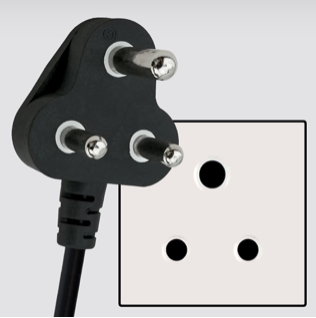French Guiana / Guyane – Let’s explore here
What’s it like in French Guiana?
French Guiana is an overseas department of France located on the northern coast of South America in the Guianas. It has a population of around 300,000 people, making it one of the least densely populated places on Earth. About half of the population lives in the metropolitan area of the capital, Cayenne. It shares land borders with Suriname and Brazil.
The terrain of the country consists of a coastal strip where the majority of the people live, and dense, near-inaccessible rainforest which gradually rises as it nears the Brazilian border. French Guiana’s highest peak is Mont Bellevue, at 2,792 ft (851 m) above sea level.
It’s about the same size as Austria, and 99% of the land is covered by forests, much of which is primeval rainforest. The Guiana Amazonian Park, which is the largest national park in the European Union, covers 41% of French Guiana. It cannot be accessed from the seashore or by any means other than airplane or small river boat.
A large part of French Guiana’s economy depends on jobs and businesses associated with the European Space Agency‘s primary launch site near the equator.

A bit about the history of French Guiana
French Guiana has a history marked by colonisation, convict transportation, and modern-day integration into France.
Early History
Before European arrival, French Guiana was inhabited by various indigenous peoples, including the Arawaks and Caribs. The region was first explored by the Spanish in the 16th century but remained largely untouched by Europeans until the French arrived in the 17th century.
Colonial Period
In 1604, France established a colony in French Guiana, but it faced challenges from the harsh environment, disease, and resistance from indigenous groups. Over the centuries, French Guiana became a key area for French colonisation in the Americas, although it was often overshadowed by other French colonies in the Caribbean and North America.
Convict Transportation (19th and Early 20th Centuries)
In the mid-19th century, French Guiana became infamous as a penal colony. Thousands of French convicts were sent to the region, where they were forced to work in brutal conditions. The infamous Îles du Salut (Salvation Islands), including Devil’s Island (think Papillon), became notorious for housing political prisoners.
Post-World War II and Integration with France
In 1946, French Guiana became an overseas department of France, granting it greater political representation and integration into the French state. This marked the end of convict transportation, though the legacy of the penal system remained a dark chapter in the region’s history.
Modern French Guiana
Today, French Guiana is an integral part of France, with representation in the French National Assembly and Senate. It is one of the wealthiest regions of the Caribbean due to its use as a spaceport for the European Space Agency, with the Guiana Space Centre located there. Despite its integration with France, the region still faces significant economic challenges, including high unemployment rates and social unrest. French Guiana remains culturally diverse, with influences from indigenous peoples, African slaves, European colonisers, and recent immigrant communities.


French Guiana road trip
Our French Guianese road trip is part of a much larger South American road trip.
Map of our road trip through French Guiana

Our current planned road trip takes us from Suriname along the coast towards the capital, Cayenne, before doubling back to Suriname.
No doubt we’ll explore the country much more than this continent-spanning short route shows, in particular checking out inland French Guiana.
Hopefully our journey will improve our knowledge of this intriguing and beautiful country, and enable us to meet some interesting people. We’ll be updating this page at that time – don’t forget to check back 🙂
What’s it like to drive in French Guiana?
They drive on the right hand side of the road in French Guiana.
Do you require an international driving permit in French Guiana?
We’ve created a dedicated page to driving abroad, which answers this question, and more, which you might find helpful.
Can you use your UK driving license when driving through French Guiana?
We’ve created a dedicated page to driving abroad, which answers this question, and more, which you might find helpful.
Do I need a carnet de passages to drive in French Guiana?
We’ve created a dedicated page to driving abroad, which answers this question, and more, which you might find helpful.
What are the speed limits in French Guiana?
The speed limits for cars in French Guiana are:
- 30 mph (50 km/h) for urban driving
- 50 mph (80 km/h) outside of built up areas
- 70 mph (110 km/h) on dual carriageways
- 80 mph (130 km/h) on motorways
What currency do they use in French Guiana?
In French Guiana they use the Euro. Cash is widely used. The use of credit / debit cards is widely accepted in tourist areas. Travellers cheques are not generally accepted. There are many ATMs in tourist areas, although not all accept foreign issued cards.
You should make yourself aware of the amount that your bank charges you for using credit and debit cards abroad. Often credit cards are cheaper for purchasing items directly, and for withdrawing cash from ATMs.
What language do they speak in French Guiana?
They speak French in French Guiana. English is not spoken widely outside of major cities.
What time zone is French Guiana in?
Remember, when you’re planning your next trip to take a look at what time zone it’s in.
Do I need a visa to visit French Guiana?
We’ve created a dedicated, more comprehensive page on visas, which you should find helpful. Check it out!
Is wild camping legal in French Guiana?
Yes, wild camping is fine in French Guiana, although make sure the land is not private.
What plug / socket type do they use in French Guiana?
In French Guiana they use plug / socket types C, D and E.



Health issues in French Guiana
Is it safe to drink water in French Guiana?
Yes, it is safe to drink tap water in French Guiana. Bottled water is also readily available across the country.
What vaccinations are required for French Guiana?
This NHS website is kept up to date with all relevant information on vaccinations in French Guiana.
Phones in French Guiana
What is the country calling code for French Guiana?
The country calling code for French Guiana is +594
What are the emergency phone numbers in French Guiana?
- The emergency number for police in French Guiana is: 112 / 17
- In French Guiana, the emergency number for ambulance is: 112 / 15
- The emergency number for fire in French Guiana is: 112 / 18
If you’ve got some useful info that you’d like to share, let us know!
And don’t forget to check out all the other pictures!
